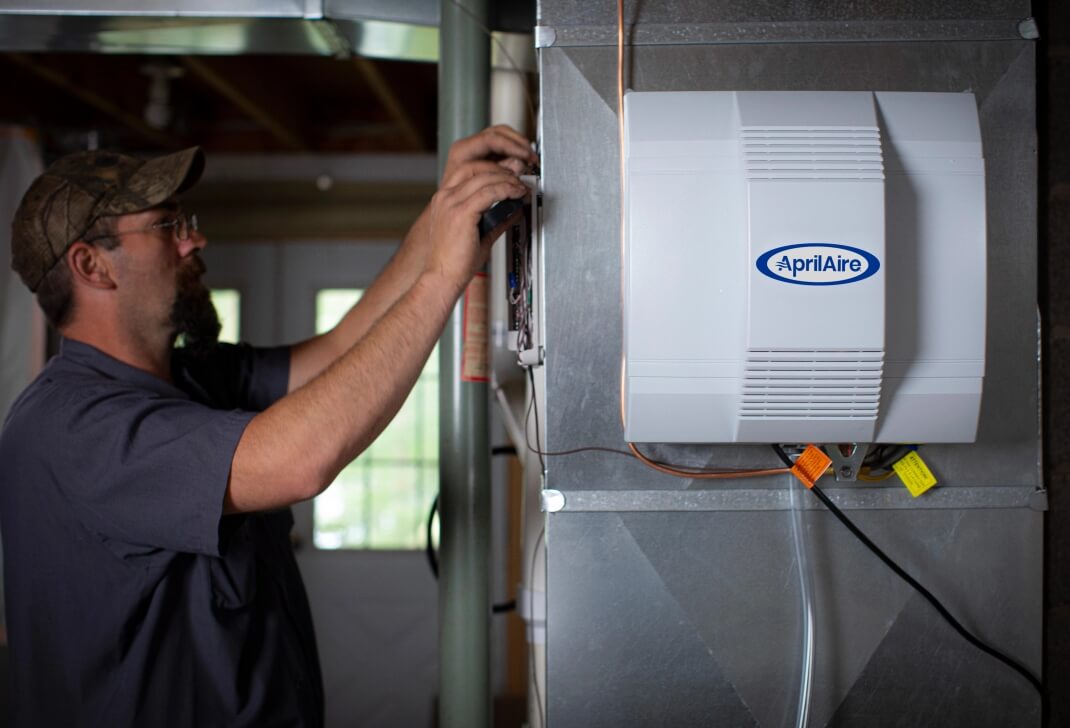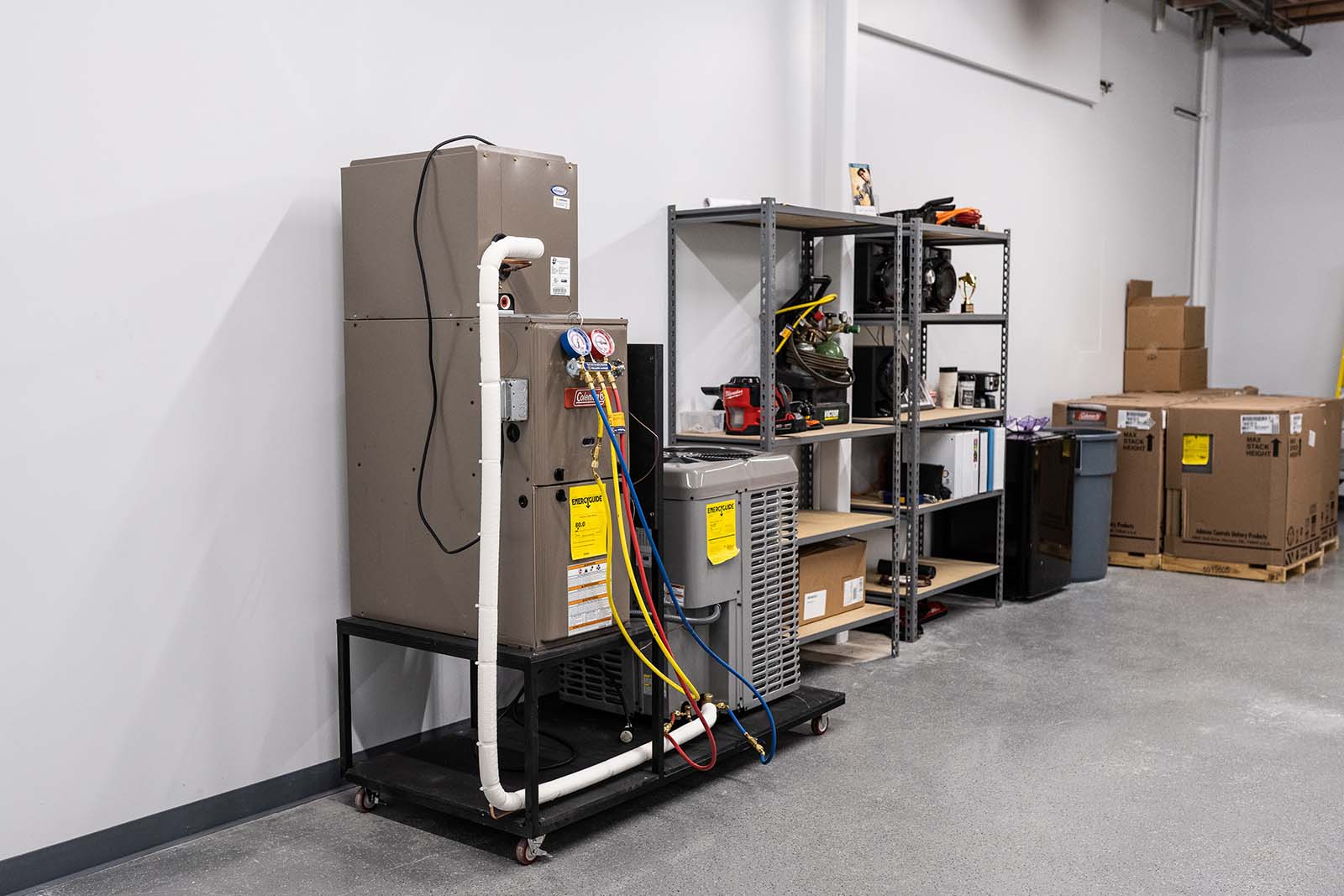HVAC Contractor for Reliable Heating & Cooling Solutions
HVAC Contractor for Reliable Heating & Cooling Solutions
Blog Article
Exactly How Cooling Equipment Revolutionize Indoor Atmospheres for Year-Round Convenience
The advent of air conditioning systems has actually without a doubt transformed the way we experience indoor environments, offering unmatched control over temperature level and convenience throughout the year. These systems exceed mere temperature modifications; they boost indoor air high quality and contribute dramatically to power effectiveness. With developments like clever innovation and programmable thermostats, cooling has ended up being a cornerstone of modern living, influencing health and wellness and well-being. Yet, while we delight in the conveniences they bring, it is vital to analyze how these systems integrate within our day-to-days live and their more comprehensive effects on sustainability and health. What are the hidden facets of this technical wonder?
Temperature Level Control and Adaptability
When it comes to achieving year-round convenience, the significance of temperature level control and adaptability in air conditioning systems can not be overstated. Modern air conditioning units offer advanced innovations such as programmable thermostats and variable speed compressors, which allow customers to keep desired temperatures with amazing performance.
Versatility is one more important component of contemporary air conditioning systems. Additionally, some systems include wise technology, allowing remote accessibility and monitoring with mobile gadgets.
In business areas, this versatility is especially advantageous, as it enables companies to create customized atmospheres that boost efficiency and consumer fulfillment. Ultimately, the accuracy and versatility of contemporary cooling systems play a critical duty in supplying reliable, year-round indoor comfort.
Enhancing Indoor Air Top Quality
In addition to temperature control, boosting interior air quality is a critical aspect of modern air conditioning systems. Incorporating high-efficiency particle air (HEPA) filters, modern air conditioners can catch microscopic particles, such as smoke, plant pollen, and dirt, which add to respiratory issues and allergies.
Furthermore, advanced cooling systems commonly consist of functions such as humidity control, which is essential in avoiding mold and mildew growth and keeping ideal moisture degrees (HVAC Contractor). Excessive moisture can cause pain, advertise microbial growth, and exacerbate certain health problems. By regulating moisture, a/c unit assist mitigate these risks, better boosting interior air high quality
Furthermore, some systems integrate air purifiers and ionizers, utilizing innovations that reduce the effects of toxins and deactivate airborne microorganisms. This comprehensive strategy to air high quality monitoring ensures a much healthier interior environment, minimizing the risk of health problem and boosting general health. Subsequently, the concentrate on air top quality enhancement highlights the progressing role of air conditioning systems past simple temperature policy.
Power Efficiency Innovations
Modern air conditioning systems have undergone substantial innovations in power efficiency, adding to both cost financial savings and environmental sustainability. The fostering of high-efficiency compressors, variable speed electric motors, and progressed cooling agents are critical developments that have changed exactly how these systems operate.
Smart thermostats have additionally played a vital function in enhancing power efficiency. These gadgets learn customer preferences and adjust cooling schedules accordingly, making sure that air conditioning systems operate only when required. Combination with wise home modern technologies permits remote and surveillance, more curtailing energy wastefulness.
Furthermore, the change in the direction of environment-friendly refrigerants with lower international warming YOURURL.com possibility (GWP) is a vital growth. These cooling agents are not only much better for the environment but additionally boost system effectiveness, lining up with global efforts to decrease carbon impacts. Moreover, improvements in warm exchanger technology have actually made it possible for extra effective heat transfer, improving total system efficiency. Collectively, these innovations symbolize a significant stride in the direction of lasting cooling remedies that profit both customers and the planet.
Influence On Health And Wellness and Wellness
The impact of a/c systems on health and wellness and health is complex, impacting various aspects of daily life. Mostly, these systems provide remedy for severe temperatures, which is essential for susceptible populaces such as the elderly and people with certain health conditions. By maintaining a steady indoor environment, cooling decreases the danger of heat-related diseases, including heat exhaustion and heatstroke, thereby protecting passengers' health and wellness.

Nonetheless, it is necessary to maintain cooling systems consistently to ensure their optimal capability and to stay clear of potential health threats related to badly kept units, such as the spreading of bacteria. Ultimately, when effectively managed, a/c systems play a critical role in boosting convenience, advertising wellness, and sustaining a healthier living environment throughout anthony's heating and cooling the year.
Combination With Smart Technology
Smart innovation has changed the means air conditioning systems operate, using boosted effectiveness, convenience, and control. Modern air conditioning systems now integrate seamlessly with wise home ecological communities, permitting customers to handle their indoor environment remotely by means of smartphones or voice-controlled devices. This connection enables real-time monitoring and changes, making certain that energy consumption is enhanced and convenience is preserved without the demand for constant manual intervention.
The integration with smart modern technology additionally assists in the usage of innovative scheduling features, permitting systems to adjust temperatures according to tenancy patterns and choices. HVAC Contractor. This not only maximizes comfort yet also reduces unneeded power usage, adding to reduced energy costs and a decreased carbon impact. Additionally, smart sensing units supply beneficial data on air high quality and system performance, notifying users to potential concerns before they rise into costly repair services
Additionally, compatibility with smart home aides such as Amazon Alexa or Google Assistant enhances customer experience by offering hands-free control and the capacity to develop customized automation regimens. As wise modern technology proceeds to evolve, it will undoubtedly bring further innovations to a/c systems, guaranteeing they stay at the forefront of giving ideal interior settings year-round.
Conclusion

In addition to temperature control, enhancing interior air high quality is a vital facet of modern air conditioning systems. Including high-efficiency particulate air (HEPA) filters, modern air conditioners can catch microscopic fragments, such as smoke, dust, and plant pollen, which add to respiratory system concerns and allergic reactions. By regulating moisture, air conditioners aid reduce these threats, better improving interior air quality.
The focus on air top quality improvement underscores the advancing duty of air conditioning systems past plain temperature level regulation.
In addition, air conditioning systems contribute to improved indoor air quality by filtering out pollutants, allergens, and particulate matter.
Report this page